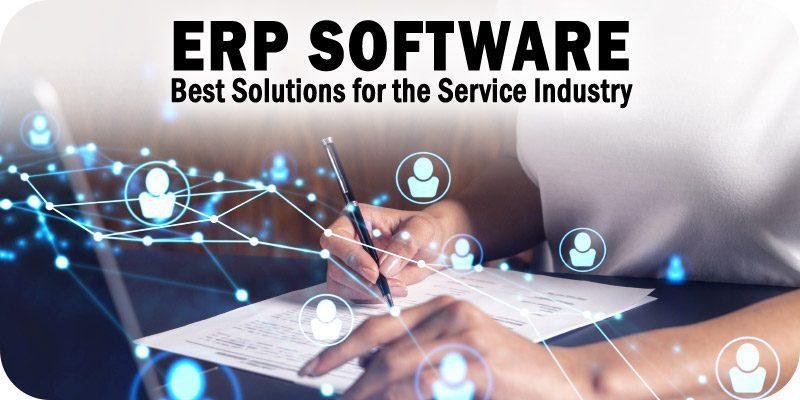In the dynamic and competitive business environment of today, organizations must constantly adapt to new challenges and opportunities. One of the most effective ways to achieve this is by implementing a modern Enterprise Resource Planning (ERP) system. A modern ERP system integrates various business processes into a single, unified platform, providing real-time visibility, improving efficiency, and enabling better decision-making. This article explores the numerous benefits that a modern ERP system can bring to your organization.
1. Streamlined Business Processes
A modern ERP system is designed to integrate and streamline various business processes across departments, including finance, human resources, supply chain management, sales, and customer service. By automating routine tasks and ensuring that data flows seamlessly between departments, an ERP system reduces the need for manual intervention and minimizes the risk of errors.
For example, when a sales order is placed, the ERP system can automatically update inventory levels, trigger procurement processes, generate invoices, and provide real-time updates to the finance department. This level of integration and automation ensures that processes are completed more quickly and accurately, freeing up employees to focus on more strategic tasks.
2. Improved Data Visibility and Accuracy
One of the key benefits of a modern ERP system is the ability to provide real-time visibility into all aspects of the business. By centralizing data from various departments into a single platform, ERP systems ensure that decision-makers have access to accurate, up-to-date information.
For instance, with real-time data on inventory levels, sales performance, and financial metrics, managers can make informed decisions that optimize resources and reduce costs. The accuracy of the data is also enhanced, as the need for manual data entry is minimized, reducing the potential for human error. This level of visibility and accuracy is crucial for maintaining a competitive edge in today’s fast-paced business environment.
3. Enhanced Collaboration and Communication
Modern ERP systems break down silos between departments, fostering a culture of collaboration and communication within the organization. By providing a single source of truth, ERP systems ensure that all employees are working with the same data and information, reducing misunderstandings and improving coordination.
For example, the sales and marketing teams can access the same customer data, enabling them to collaborate more effectively on campaigns and customer outreach. The finance department can easily communicate with procurement and supply chain teams to ensure that budgets are aligned with purchasing decisions. This enhanced collaboration leads to more cohesive strategies and better overall business performance.
4. Scalability and Flexibility
As businesses grow and evolve, their software needs also change. A modern ERP system is designed with scalability and flexibility in mind, allowing organizations to add new modules, features, and users as needed. This ensures that the ERP system can grow with the business, accommodating new processes, products, and markets.
For example, a business that expands into international markets may need to add modules for multi-currency transactions, international tax compliance, and global supply chain management. A modern ERP system can easily be adapted to meet these new requirements, ensuring that the organization remains agile and responsive to changing market conditions.
5. Cost Efficiency
While the initial investment in a modern ERP system can be significant, the long-term cost savings are substantial. By automating processes, reducing errors, and improving efficiency, ERP systems help organizations save time and money. Additionally, the centralized nature of ERP systems reduces the need for multiple, disparate software solutions, lowering IT and maintenance costs.
For example, by automating the procurement process, an ERP system can reduce the time and resources required to manage supplier relationships, negotiate contracts, and process purchase orders. This not only lowers operational costs but also improves the organization’s ability to secure favorable terms with suppliers, further enhancing cost efficiency.
6. Better Compliance and Risk Management
In today’s regulatory environment, compliance and risk management are critical concerns for businesses across all industries. A modern ERP system helps organizations stay compliant with industry regulations and standards by providing tools for tracking and managing compliance-related activities.
For instance, an ERP system can automate the tracking of financial transactions, ensuring that they are recorded accurately and in compliance with relevant regulations. It can also provide real-time alerts and reporting capabilities, enabling organizations to identify and address potential risks before they escalate into major issues. This proactive approach to compliance and risk management is essential for maintaining the organization’s reputation and avoiding costly fines and penalties.
7. Improved Customer Service
Customer satisfaction is a key driver of business success, and a modern ERP system can significantly enhance an organization’s ability to deliver excellent customer service. By providing a 360-degree view of customer interactions, ERP systems enable businesses to respond more quickly and effectively to customer inquiries, orders, and issues.
For example, customer service representatives can access real-time information on order status, inventory levels, and shipping details, allowing them to provide accurate and timely updates to customers. This level of service not only improves customer satisfaction but also strengthens customer loyalty and drives repeat business.
Conclusion
Implementing a modern ERP system offers a range of transformative benefits for organizations seeking to enhance their efficiency and competitive edge. By integrating core business processes into a unified platform, companies can achieve improved data accuracy, streamlined operations, and enhanced decision-making capabilities.






before and after hgh
References:
testosterone hgh cycle
test and dianabol cycle
References:
Dianabol And Anavar Cycle (Motionentrance.Edu.Np)
dianabol anavar cycle
References:
Valley.Md
what to take with dianabol cycle
sytropin hgh oral supplement spray
References:
wehrle
allen shop steroids
References:
Valley.Md